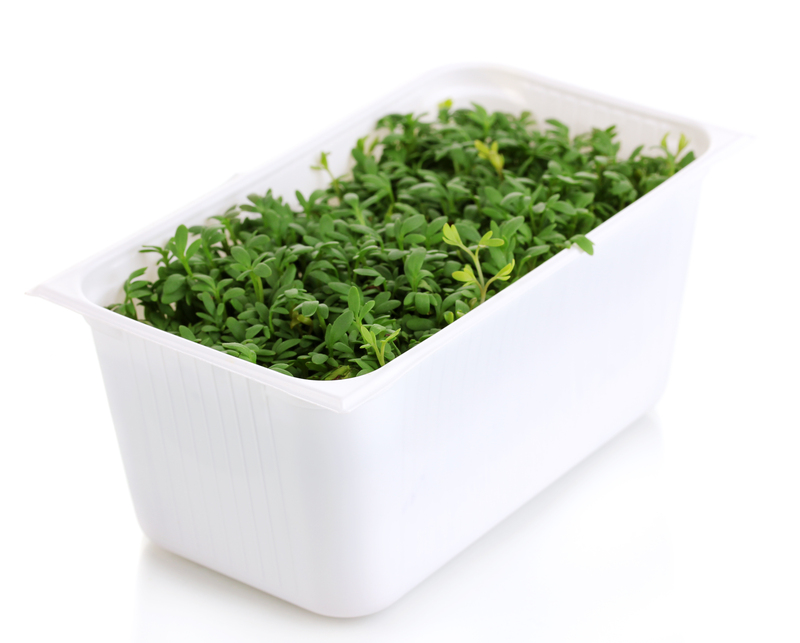Recycling Old Pots and Pans for a Greener Kitchen
In today's age of sustainability, embracing eco-friendly kitchen practices is more important than ever. Recycling old pots and pans not only helps reduce landfill waste but also contributes to a cleaner and greener home. If you're looking to minimize your environmental footprint, understanding how to give your old cookware a second life is essential. This comprehensive guide will show you how to recycle, repurpose, and creatively reuse old pots and pans for a truly greener kitchen.
Why Should You Recycle Old Cookware?
Old pots and pans are a common household waste item, but discarding them in the trash isn't the greenest solution. Here's why you should opt for kitchenware recycling:
- Reduces landfill waste - Metal and plastic can take centuries to decompose.
- Conserves resources - Recycling saves raw materials and energy used in creating new products.
- Prevents toxic leaching - Nonstick coatings and metals can release toxins into soil and water when dumped.
- Encourages sustainability - Sets a positive example for family and community.

Types of Pots and Pans That Can Be Recycled
Not all kitchenware is created equal when it comes to recycling. Here's a quick guide to the most common types:
- Stainless Steel - One of the easiest materials to recycle. Most metal scrap yards will accept these.
- Aluminum - Also widely accepted, provided plastic parts are removed.
- Copper - Highly valuable and recyclable, especially for specialty recycling centers.
- Cast Iron - Can be recycled, though it's often better for repurposing due to its durability.
- Non-Stick (Teflon) - Needs special handling due to coatings; not accepted everywhere.
- Ceramic and Glass - Tricky, but some programs do accept them.
What About Pots and Pans with Plastic or Wooden Handles?
Many pieces of old cookware feature mixed materials. Plastic parts and wooden handles should generally be removed before recycling. If that's not possible, check with your local recycling center about their handling of composite items.
How to Prepare Your Old Pots and Pans for Recycling
To maximize the chances of proper recycling, follow these steps before dropping your unwanted cooking items at a recycling facility:
- Clean Your Cookware - Thoroughly wash and remove any food residue, grease, or burned-on material.
- Remove Any Non-Metal Parts - Unscrew, pry off, or otherwise detach plastic, silicone, and wooden handles or lids.
- Check for Non-Stick Coatings - Pans with Teflon or similar coatings may need to go to a specialty recycler.
- Sort by Material - Many recycling centers require you to separate metals such as aluminum, stainless steel, and cast iron.
- Contact Your Recycling Service - Always confirm which metals they accept and any special preparation requirements.
Where to Recycle Old Pots and Pans
Not sure where to bring your used cooking utensils and cookware? Here are some solutions to ensure responsible recycling:
- Scrap Metal Yards - Most local scrap metal recyclers are happy to take pots and pans, regardless of their condition, as long as they are mostly metal.
- Municipal Recycling Centers - Some city recycling centers accept metal cookware. Check their website or call ahead for rules and drop-off details.
- Manufacturer Take-Back Programs - Some brands offer take-back schemes or trade-ins, especially for high-end or specialty cookware.
- Retail Drop-Off Points - Certain retailers, especially kitchen stores, collect old cookware for recycling. Ask about any incentive or loyalty programs.
If your local recycling options are limited, search online for terms like "recycle cookware near me" or check directories like Earth911.
Alternative Ways to Reuse Old Pots and Pans
If recycling is not an option, or you prefer more creative solutions, try out these innovative ideas for repurposing kitchenware:
1. Upcycled Planters for Your Garden or Home
- Stainless steel and cast iron pots make charming containers for herbs, succulents, or flowers.
- Paint old pans with non-toxic outdoor paint for a fun and colorful look.
- Drill drainage holes in the bottom to prevent waterlogging.
2. Unique Storage and Organization Solutions
- Use large, deep pans for organizing tools or crafting supplies.
- Hang skillets or small pots on an accent wall for a rustic kitchen decor touch.
- Arrange small pans as drawer organizers for office or kitchen use.
3. DIY Non-Traditional Uses
- Craft clocks, candle holders, or wall art out of flat pans or lids.
- Turn a pot into a birdbath or pet water dish for the backyard.
- Use as a unique serving tray at your next party.
4. Donate to Charity or Thrift Stores
If your cookware is still functional, consider giving it to students, shelters, or community kitchens that can put it to good use.
How to Upcycle for a Creative, Green Home
Upcycling is about transforming something that might otherwise be thrown out into something useful and beautiful. Repurposing old pots and pans for home and garden not only gives you a greener kitchen but also sparks creativity! Here are more inventive upcycling projects:
- Chalkboard Frying Pan: Paint the bottom with chalkboard paint and write fun messages or to-do lists.
- Pot Lid Clock: Add clock hands to a colorful lid for a quirky wall clock.
- Mini Herb Garden: Line several pans on a windowsill or shelf and plant easy-care herbs.
- Garden Art: Nail together pans of varying sizes as outdoor wall art or wind chimes.
Common Questions About Recycling Kitchenware
-
Can you recycle nonstick pans?
Yes, but with caveats. The coating (like Teflon) requires special recycling processes. Most curbside programs won't accept nonstick, so find a metal recycler with specific processes or try the manufacturer's take-back. -
Is it safe to use heavily scratched cookware?
No, scratched nonstick pans can release toxins. If your cookware is damaged, it's better to recycle or upcycle it than continue use. -
What if my pot or pan is rusty?
Rust isn't an issue for metal recyclers. Just clean the pan and remove non-metal parts before recycling or upcycling. -
How do I find recycling programs near me?
Contact your local waste department, or use online platforms like Earth911 to locate the nearest drop-off.
Tips to Make Your Kitchen More Sustainable
Recycling and reusing pots and pans is just the start. Here are a few extra steps for a greener kitchen lifestyle:
- Choose quality over quantity. Invest in durable, long-lasting cookware to minimize replacement frequency.
- Avoid nonstick as much as possible. Opt for stainless steel, cast iron, or glass for easier recycling.
- Buy second-hand or vintage cookware. Great for the environment and your wallet!
- Compost food scraps. Reduce landfill waste by composting rather than trashing.
- Switch to reusable kitchen goods. Cloth towels, containers, and silicone mats cut down on single-use products.
- Upcycle or donate before discarding. Always consider if your cookware has a second life.

Benefits of Recycling and Reusing Cookware
Making the effort to recycle your kitchen pots, pans, and utensils offers a range of personal and environmental benefits:
- Reduces environmental impact for future generations.
- Frees up space in your home.
- Lowers the demand for new resources and reduces mining and manufacturing pollution.
- Builds community through local donation and creative reuse projects.
- Sets an example for friends and family--growing awareness about sustainability.
Conclusion: Every Green Kitchen Starts with Small Steps
Recycling old pots and pans is a simple yet effective way to make your home more environmentally friendly. Whether you choose to drop your kitchenware off at a metal recycler, upcycle it into creative decor, or donate it to someone in need, every action makes a difference in reducing waste and conserving resources. By committing to smart kitchen recycling habits, you pave the way for a cleaner, greener, and more sustainable future for everyone.
Take Action Today!
Ready to breathe new life into your kitchen items? Start sorting, repurposing, and recycling your old pots and pans now. Share your creative upcycling projects or local recycling spots with friends and family--together, we can make kitchens everywhere greener and more sustainable.
